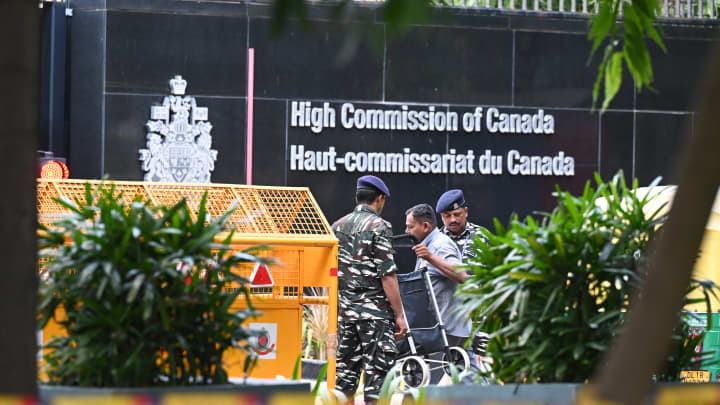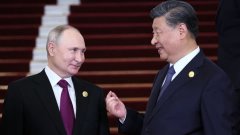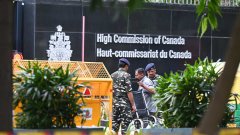
Canada has pulled 41 diplomats and their families from India, after New Delhi threatened to have their diplomatic immunities revoked if Ottawa did not comply with demands for parity in diplomatic staffing.
"Canada confirms that India formally communicated its plan to remove immunities unilaterally for all but 21 Canadian diplomats and dependents in New Delhi by October 20, 2023," the Canadian Foreign Ministry said in a statement on Thursday.
Canada's compliance effectively slashed its diplomatic numbers in India by about two-thirds. As a result, Canada has to at consulates in Bengaluru, Chandigarh and Mumbai, leaving its High Commission in New Delhi as the only place in India where it is able to offer services in a country that's been its largest source of new migrants.
Tensions between the two countries when Canadian Prime Minister Justin Trudeau's claimed there were " " the Indian government orchestrated the extra-judicial slaying of a Sikh separatist in Canada.
India reiterated its position.
"The state of our bilateral relations, the much higher number of Canadian diplomats in India, and their continued interference in our internal affairs warrant a parity in mutual diplomatic presence in New Delhi and Ottawa," India's Ministry of External Affairs Friday.
After reciprocal diplomatic expulsions last month, India issued a travel warning for its citizens, suspended visa applications in Canada, and demanded for , which meant Ottawa had to cut staff numbers in India.
"A unilateral revocation of diplomatic privileges and immunities is contrary to international law, including the Vienna Convention on Diplomatic Relations. This action taken by India is completely unreasonable and escalatory," the Canadian Foreign Ministry said.
"Diplomatic immunities should be respected and cannot be unilaterally revoked by a host country. If we allow this norm to be broken, no diplomat anywhere would be safe," Canada added.
"As such, the Government of Canada will continue to respect diplomatic norms and not reciprocate this action."
The Indian government, however, .
India's actions are "fully consistent" with Article 11.1 of the Vienna Convention on Diplomatic Relations, which stipulates the receiving state may require the size of a mission be kept within limits considered to be "reasonable" in the absence of a specific agreement on the size of the mission, it said.
"We reject any attempt to portray the implementation of parity as a violation of international norms," the Indian government added.




